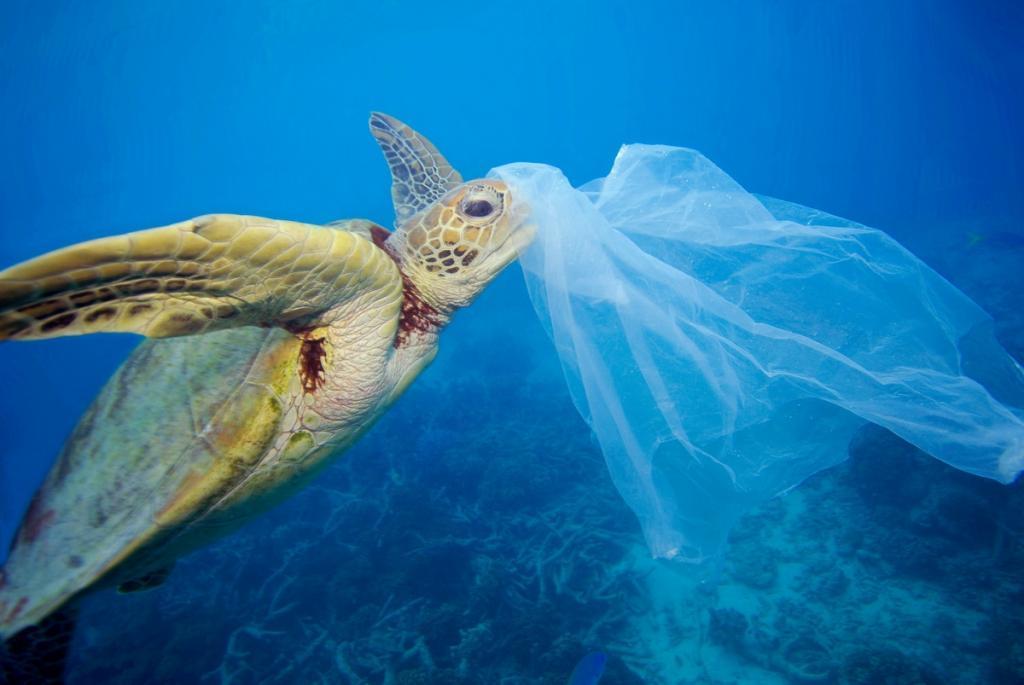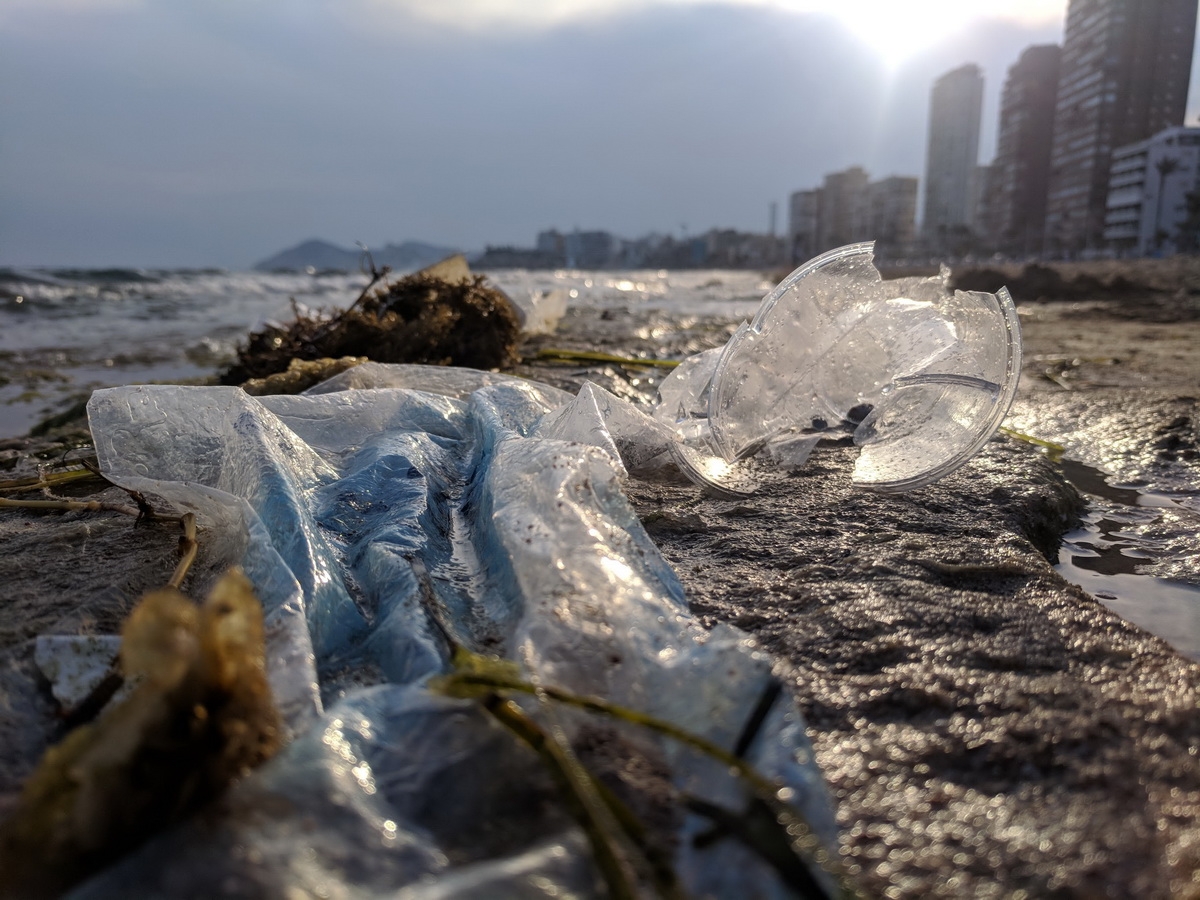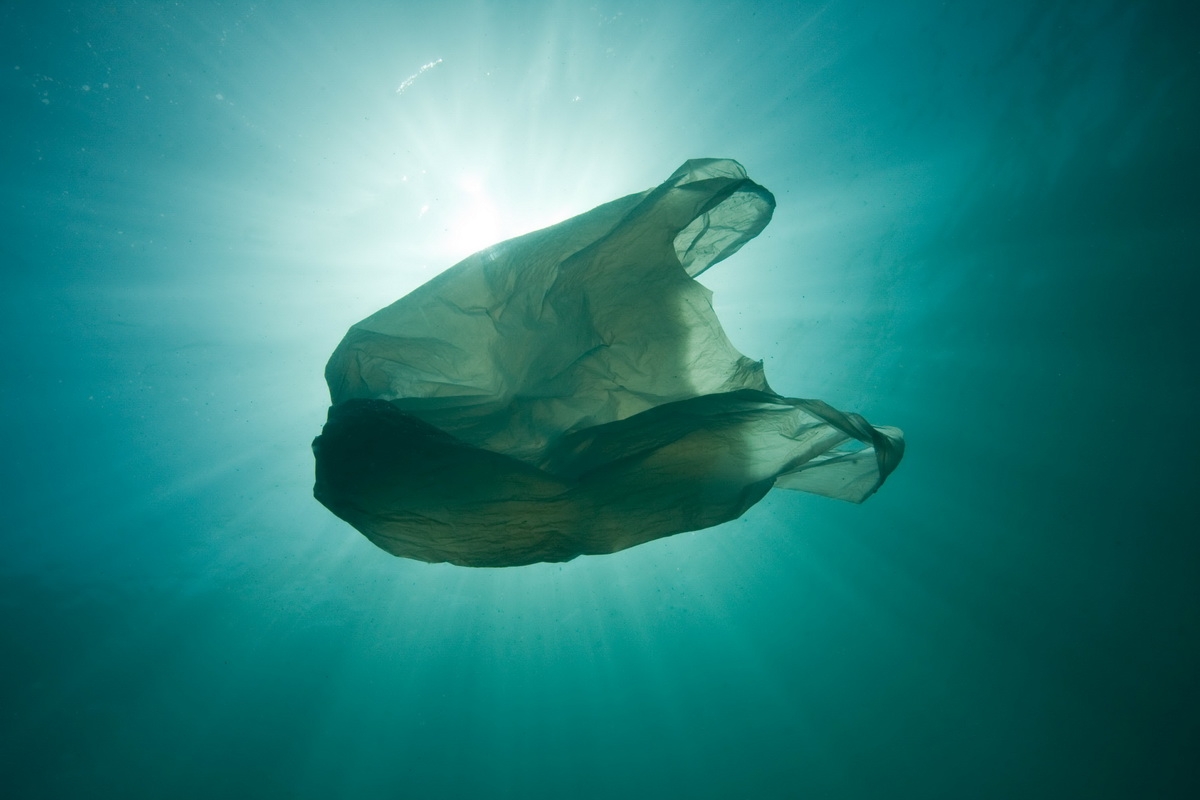
© Green sea turtle (Chelonia mydas) with a plastic bag, Moore Reef, Great Barrier Reef, Australia. The bag was removed by the photographer before the turtle had a chance to eat it. (c) Troy Mayne / WWF

© Plastic waste got washed up on the beach in front of apartment towers. (c) Visual Persistence

© Plastic bag floating in the sea, resembling a jellyfish swimming Dangerous to sea turtles. (c) naturepl.com / Sue Daly / WWF
Uncontrollable plastic flood
March 16, 2019
UN environmental summit ends without effective agreement on plastic waste
The UN Environment Conference in Nairobi ended on Friday, March 15, 2019, without the international community agreeing to enter into negotiations for a plastic waste agreement
Two states have opposed such initiatives. WWF Germany is disappointed with the negotiations and a very weak resolution. Alois Vedder, Head of Politics at WWF Germany comments:
"
In Nairobi, hope has vanished for the moment that the international community is resolutely and quickly fighting against the flood of plastic. In doing so, she (the international community) violates her duty, because all states have jointly blamed the plastic crisis and no country can solve it alone. It is disappointing that at the highest environmental summit the international community fails to get the mandate ready for a much needed agreement. This endangers the cooperation of governments on a growing environmental problem worldwide. The subject will not wait until the next conference in two years, because every minute another truckload of plastic gets into the oceans."
"The only bright spot is Germany's announcement to invite supporters of an agreement to Germany for further talks this year, so that we can work together to make progress that will hopefully result in a proposal from key states for UNEA 2021. It is to be welcomed that Germany wants to take an active role here. In order to stop the littering of the oceans, a legally binding agreement is needed, which obliges every state to stop its entry in the plastics industry, in order to better avoid, collect and destroy plastic waste even in financially weaker states. A recycling mechanism and technology transfer will also need to be developed, and if we do not act, the amount of plastic waste already in the oceans will double in the next 15 years," says Vedder.